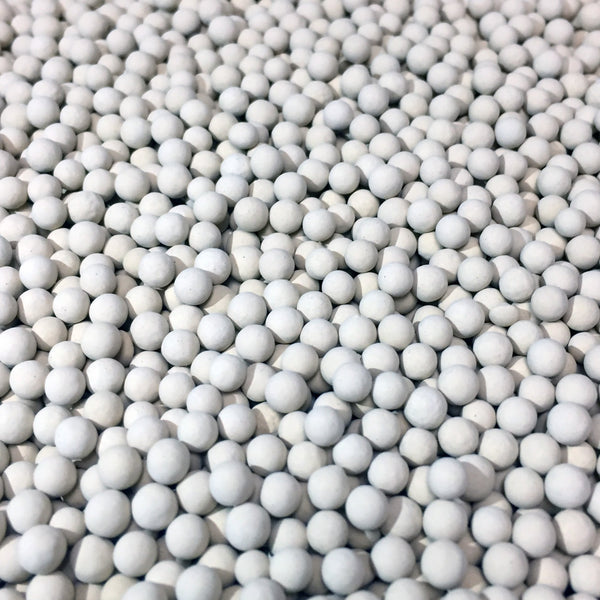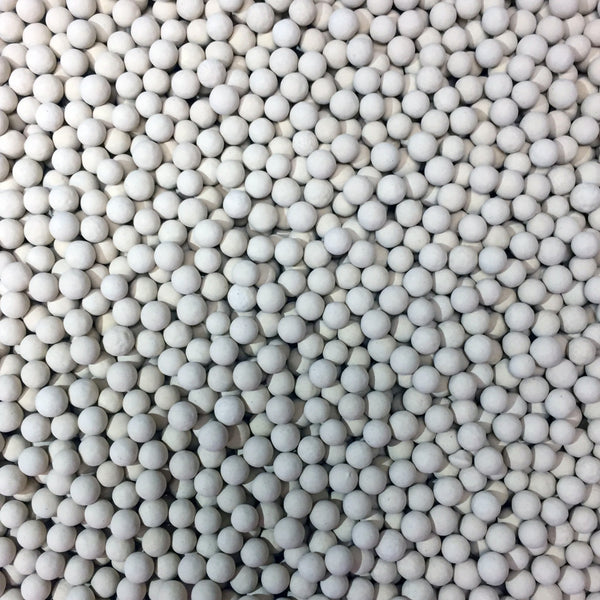3A Molecular Sieve (4x8 Bead)
- Available in Packaging Option:
- 330 Pound Drum (actual weight: 150kg)
- Our ISO Certified manufacturing process and multiple quality control checkpoints allows us to deliver reliable products to our users
- For use in industrial, laboratory, or personal applications
- Local packaging and inventory available in Houston, Texas
General Use 3A Molecular Sieve is Most Commonly Used for Dehydration Applications that Require all Feasible Water Content to be Removed from a Desired Product Stream. Some Saturated Mixtures, known as Constant Boiling Point Mixtures, Cannot be Dehydrated through Distillation Alone due to Naturally Occurring Zeotropes. When a Zeotrope is Reached, Molecular Sieve Technology can be Applied to Continue the Dehydration Process and Achieve A Drier Composition for these Mixture Streams. Type 3A Zeolite can Dehydrate Various Saturated Solutions, even When a Zeotrope Does Not Occur, and is Widely Applied as a Bulk Dehydrator for Increasing the Quality and Purity of Product Streams.
How it works 3A Molecular Sieve has a Pore Opening of Approximately 3 Angstroms in Diameter and is Perfectly Wide Enough to Allow the Adsorption of Water Molecules, which have a Molecular Diameter of About 2.8 Angstroms in Diameter. While Water can Fit Inside of the Molecular Sieve Crystal, Hydrocarbon Chains such as Ethanol (approx. 3.6 Angstroms) Won’t be Adsorbed by the Molecular Sieve due to their Larger Molecular Diameters, which Prevents the Hydrocarbons from Being Able to Fit Through the Pore Opening of the 3A Zeolite Crystal.
Applications
- Ammonia Adsorption
- Biofuel Production
- Ethanol Dehydration Units
- Siloxane Removal from Landfill Gas
- Bulk Water Adsorption
- General Dehydration
- Petrochemicals
- Olefin Cracked Gas, Ethylene, and Propylene, etc.
- Benzene, Toluene, Xylene, and more
- Polar Liquid Drying
- Ethanol, Isopropanol, Methanol, etc.
- Polymer Mixtures – Insulating Glass, Glues, Paints, Plastics, Sealants, Coatings, and more
- Refrigerant Drying
- Solvent Drying – Ethyl Alcohol, Isopropyl Alcohol, etc.




